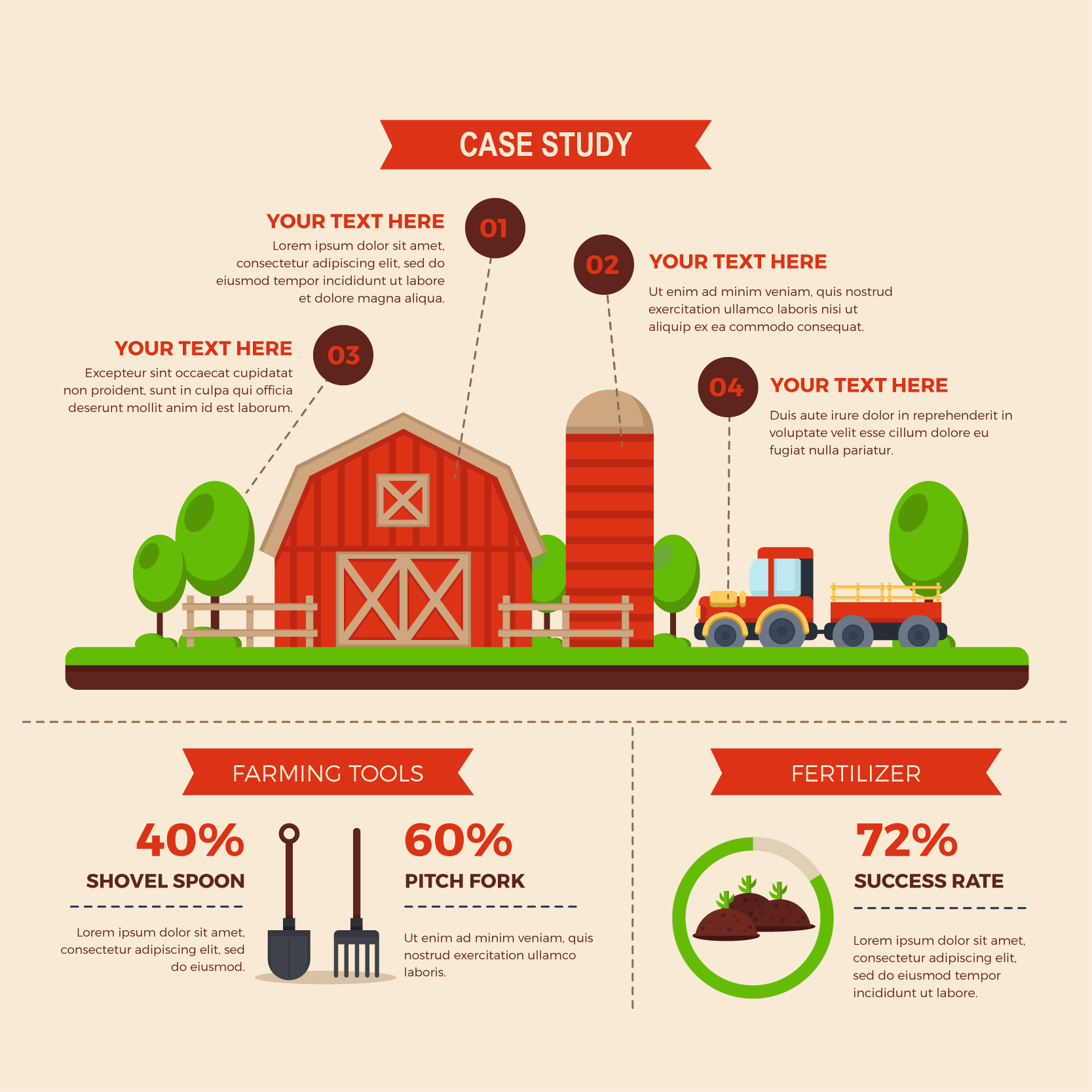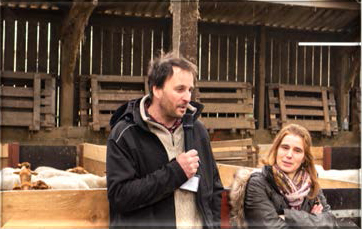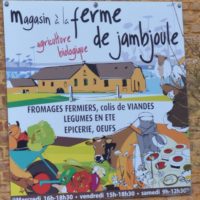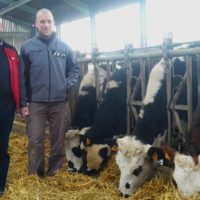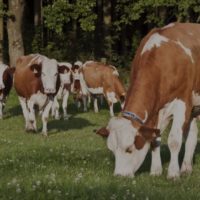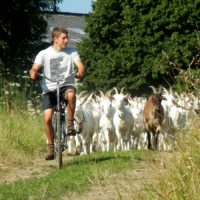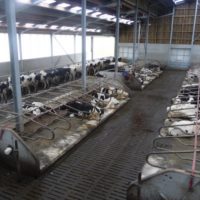Environmental services, grassland improvement and on-farm dairy processing
Farm: “Jambjoule Farm”
Location: Villers-sur-Lesse (Rochefort), Belgium
Case study
 Environmental services, grassland improvement and on-farm dairy processing (.pdf)
Environmental services, grassland improvement and on-farm dairy processing (.pdf)
Description
Background
Bernard Convié and his wife Valérie Calisis, run the family farm Jambjoule. This mixed organic livestock farm (sheep breeds and dairy cows) is located in Villers-sur-Lesse (Rochefort Municipality). The land and the farm belong to the royal domains.
Sheep farming (300 sheep of the Roux Ardennes and Mergelland breeds) is based on the valorisation of calcareous meadows (Nature Reserves) and grasslands with a high biological value, of which 86% are Natura 2000 areas, with a view to maintaining and developing the biodiversity. Thus, in addition to a production objective, the farm also provides environmental services for the benefit of the common general interest.
Dairy cows, Jersey breed, essentially exploit the meadows located around the farm (quick-rotational grazing on short grass) as well as the fodder produced on the farm.
In matter of grassland management, Bernard has been experimenting, for 3 years, different practices in order to develop the forage and protein autonomy of the farm.
Detailed description
Dairy cows have important requirements for forage quality. In Famenne (ruminant breeding area), arable land is scarce. With very few arable land, Bernard does not have the possibility of having temporary meadows and in this context, he seeks to improve the quality of his “obligate” meadows. To improve its grassland, it tests different forms of over-seeding of meadows: over-sowing using a pneumatic sowing machine (on-the-fly type) behind a dung spreading harrow or using an Aitchison seeding (equipment used in cultivation technique simplified in order to create seed beds in existing crop) that sows in furrows located every 15 centimetres at shallow depth.
Bernard also conducts trials at different times (either early in the season or after the first cut, using different mixtures on mowing plots). Bernard has also made small attempts at sowing grain in grassland (oats and peas). 2017 and 2018 have years of drought, which made the results difficult to evaluate. To this drought is added the strong pressure of the wild boars which requires repairing the meadows (logic of repair rather than improvement).
Valérie transforms the milk produced by cattle: cheese, yoghurt…
The farm is innovative at least in three areas:
- the grazing management system (fast rotational grazing) and the improvement (species composition, food value) of the grasslands, through trials of several techniques of over-sowing and sowing of cereals in grassland, and testing of different equipment
- the valorization of natural areas via a partnership with public authorities and environmentalists for the management of calcareous meadows and meadows with high biological value (Natura 2000 areas)
- processing and direct marketing of milk processing products through prototyping and the production of original cheeses (6 repined or fresh cheeses, milk in cartons and yogurts) in a new workshop. The cheeses bear the name of the four children of the family: the “Petit Gabriel” (a “crottin” made from cow milk), the “tender violet” (with a young, tender and soft dough), the “Divine Valentine” (inspired by the “chaume” cheese) and the “Sacré Jonas” (inspired by the tommes of the mountains). The “Carrémenbert” (inspired by the cheese almost of the same name) and the “Vachau”, the name of the stream near the farm, cooked cheese, similar to the “Comté”, complete the range.
Results
Today, Jambjoule Farm employs four people full time. Optimal use of the opportunities offered by the terroir (lean meadows, limestone meadows and meadows with high biological value make it possible to improve the fodder autonomy of the farm, but the climatic hazards (drought) remains an important threat.
The processing and marketing of dairy products, lamb meat and pork (valorization of whey produced by cheese production) for direct sale on the farm and via local marketing chain (“Agricovert cooperative”, etc.) makes it possible to control value chains which is essential to the profitability of the farm.
The years 2017 and 2018 having been particularly dry, the tests of grass mixtures seeding did not give interpretable results. They are to continue in 2019.
Adoption criteria
The use of rigorous monitoring and evaluation tools to quantify the technical and economic reality of the farm facilitates peer-to-peer exchanges on an objective basis. Regular confrontation of experience and practices among farmers as well as networking is important for the dissemination and adoption of innovations.
Future prospects
Various potential improvements are identified by Bernard:
- Better adaptation of meadow mixes to the situation of each farm (need more customised mixes beyond standard solutions (ready mix));
- Need for research on grassland renewal techniques (conditions (timing, preliminary work) and adapted materials);
- Need for research on over-sowing to avoid plowing and the negative effects of plowing (reduced natural drainage of the plowed meadow, stagnation of water, rise of pebbles;
- Need for research on sensitivity to the climatic hazards of the grasslands and ways to remedy their consequences;
- Need additional references for continuous short sward grazing;
- Management of some weeds (eg rumex/sorrel).
Accumulated knowledge should be disseminated preferentially through peer-to-peer exchanges.
In terms of risk, the arrival of the wolf in Wallonia is identified as likely to complicate the task of the breeders.
Additional information
| Farming system | organic farming |
|---|---|
| Domains of innovation | forage mixture, grazing management system, legume management – Perennial legumes, marketing, product processing |
| Main types of animal | dairy cattle, meat sheep |
| Country | Belgium |
| Product type | Case study |
| Language | English |
